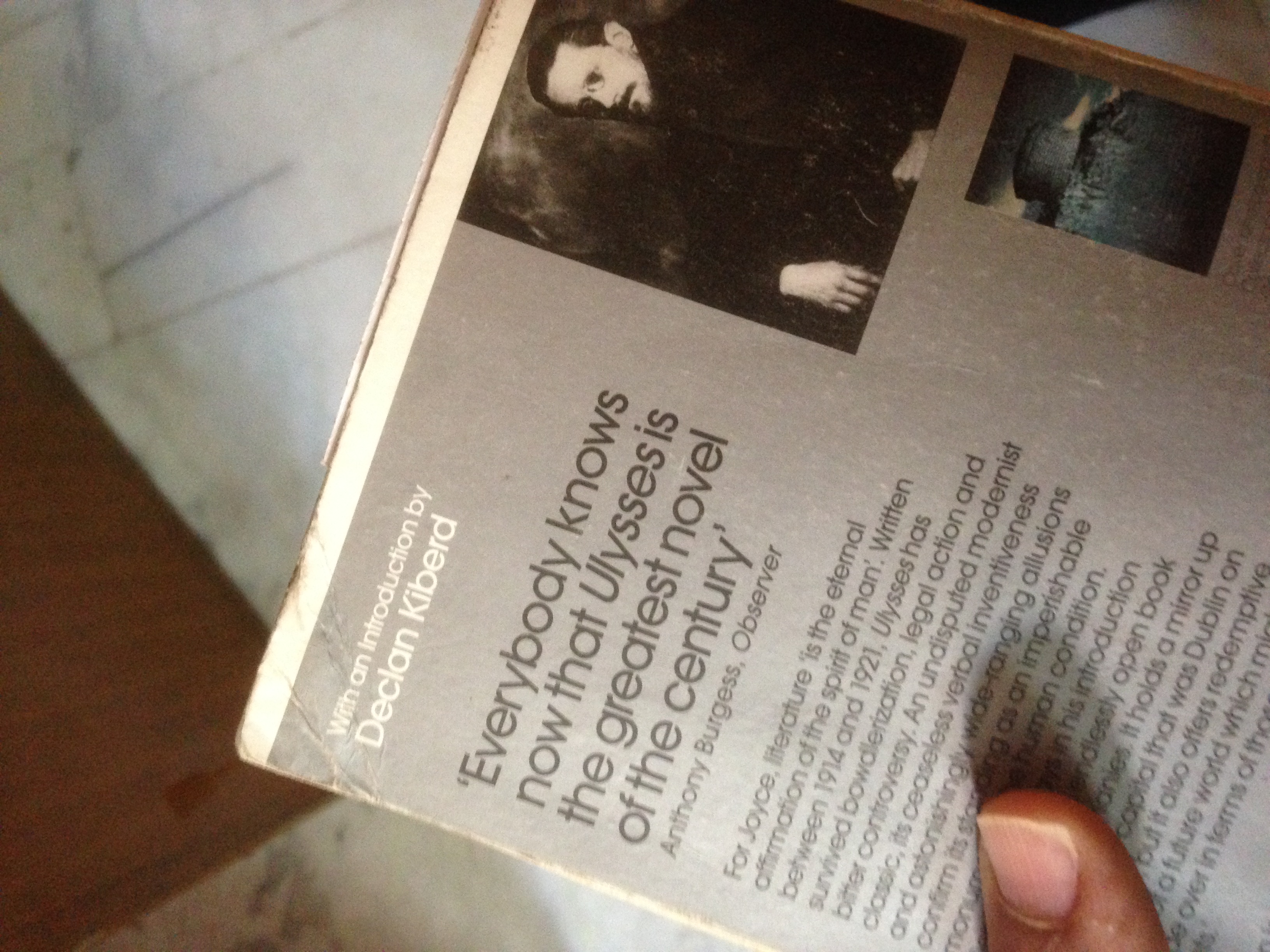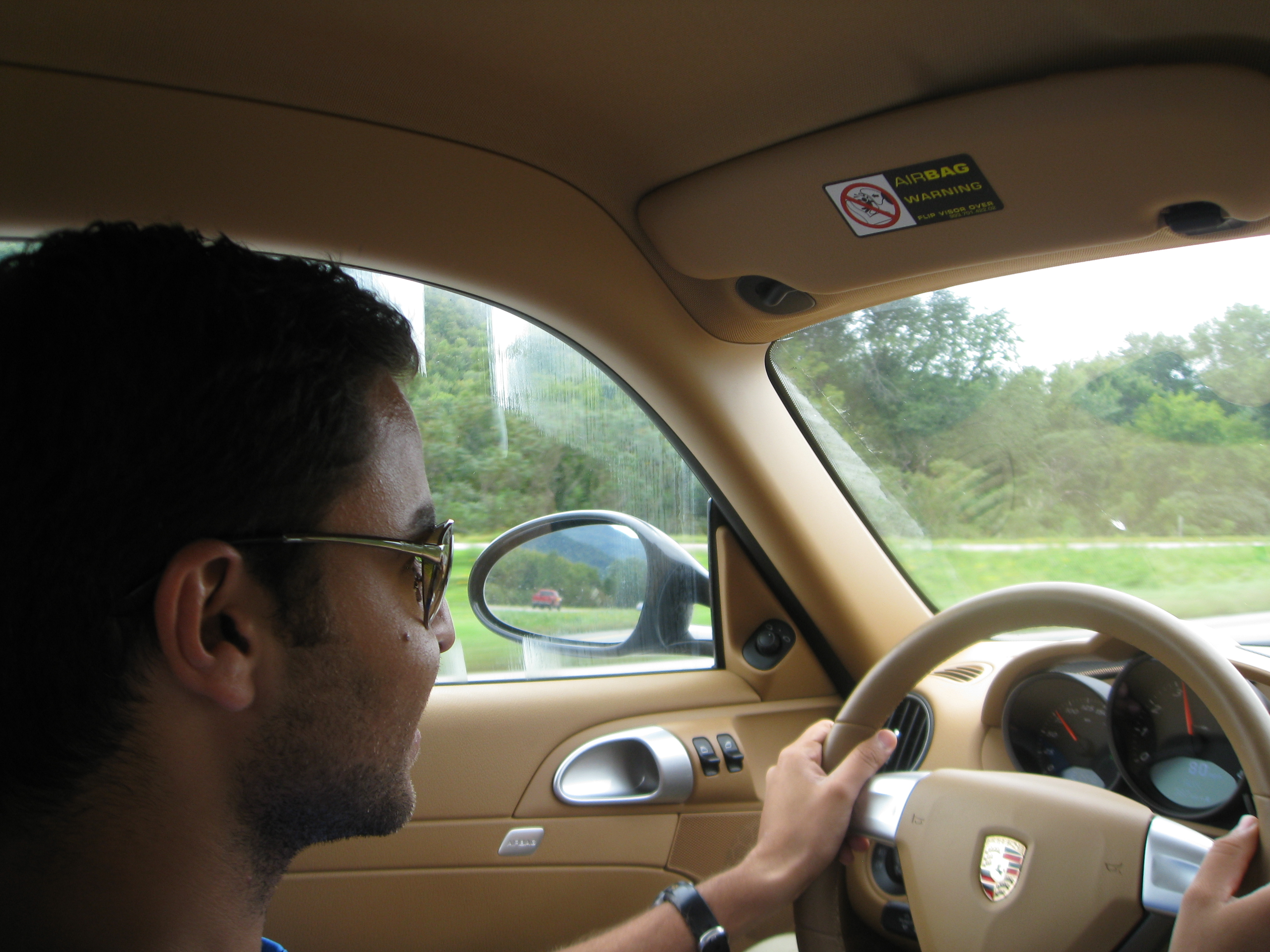
Yes, perhaps.
My friend loaned me the Ulysses with an extremely optimistic belief that that I should be able to get through that book in a few weeks. I managed to barely get through the introduction when he politely asked if I was done and I promptly returned the book admitting my incompetence in reading difficult books fast.
After visiting Dublin for a holiday weekend, I ended up narrating this incident to the nicest German teacher on the planet and she got me the book as a gift a while later. She expected that I should be able to get through the book quickly and that perhaps we could talk about in our German class. Discussions that involved read books were great for my German vocabulary and for our combined mirth.
My German classes and the odyssey has long since ended. It has been over three months even since I have left the land of Freizeit and have gone back to the land of the free. In between that time I got married, celebrated my anniversary and SpaceX returned a launched rocked and landed it back on Terra Firma vertically, successfully.
All this while, the book sat next to the side table of my bed. Each night, I would look at it apologetically and watch YouTube car videos instead. When we moved back from Germany to the States the book went from there to the shelf to a container that sailed across the Atlantic and arrived in Ann Arbor, only to be unpacked once the shelf was reassembled and then made its way back to our bedside to shame me further.
Until destiny brought long distance flights to my fore. Spending 8 hours on a plane multiple times presented itself as yet another opportunity for me finally man-up and pick up the book with all my might and finish it.
The page count was the perhaps the easiest of my hurdles. The book was a monolith of resistance. Each time I picked up the book, I found a reason to put it down even before I finished a page. And each time I put the book down, the backside of the cover would stare at me with its pugnacious note “Everyone knows now that Ulysses is the greatest book of the century”.
Yet, with James Joyce’s stream of consciousness I was struggling to make any kind of headway. His 260,000 word epic consisted of 30,000 unique words coined in sentences that were long and difficult to follow. Every hundred pages or so he would drastically alter the style of his writing. His main characters would launch in literary solo’s that stretched painfully. The entire book was about a day but each page felt like a decade. I as a reader was constantly searching for the end of the chapter. But the unique structure of the prose meant that I had to read over 100 pages for an idea or a theme to end, if I was lucky.
Could all the critics be wrong? Was this a conspiracy of some sort? How lousy of a century it must be for this book to be considered its greatest?
On the plane, in the hotel room, back at home and in my in-laws home, I questioned all of it. The variance of the styles, the usage of very long sentences. Introduction of characters that were completely out of place. It didn’t make much sense. Halfway through, I got the shivers thinking that I might have to start again since I was losing direction every few pages.
But then, it turned. His questioning of the Queen and God was delightful. He read way ahead of his time and somehow remained timeless. Dublin’s dirtiness and godliness came to fore. The main characters of Bloom and Dedalus seemed to make a lot of sense although they insensible to those around. James Joyce metaphor-ized masturbation. A light was shed on the Irish Jews. Adultery was dealt with within a day and a pint or two was had. The ladies of the night played a key role as sunset arrived and the book read rapidly 8pm onward. The last part that narrated Bloom’s wife’s consciousness was devoid of punctuation or the correct syntax and appropriately so. It concluded what was a very difficult book to read with an amateurish and a honest string of poignant thoughts on a broken marriage and infidelity, reverse treading its way to the time of the proposal, when she had said yes.
There is genius of all sorts in this book. I shudder to think how long it must have taken him to put this all together. His detailed description of the contents of a drawer had me in tangles. I could imagine the mess his words described and almost wanted to reach in to the drawer to set it right. The characters were developed slowly but they now lay permanently in my head, even after the book had finished. I finished the book with a sigh that I often exhale on finishing most books. But this time, I knew that I have achieved something worthwhile.
It took me over a year and multiple attempts but I was glad that I powered through the passages that made maddening sense of it all. This might not be the greatest book of the century. But you reading it will feel monumental. And that might be its greatest party trick. After finishing the Ulysses, I will approach any book with a lightness and ease that I never had experienced before.
“Every life is in many days, day after day. We walk through ourselves, meeting robbers, ghosts, giants, old men, young men, wives, widows, brothers-in-love. But always meeting ourselves.”
― James Joyce, Ulysses






